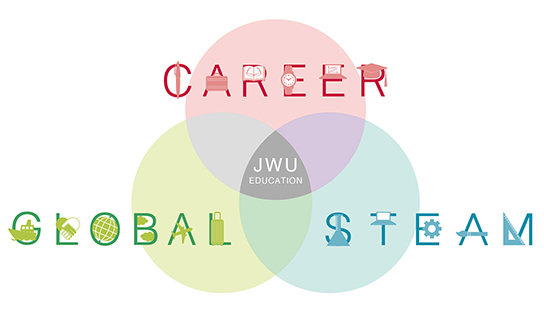Diploma Policy
Knowledge and understanding
- Students will have in-depth knowledge and research skills in child studies.
- Students will be able to identify contemporary issues related to children from multidisciplinary perspectives, and propose ways to solve them.
Thinking and judgment
- Students will recognize the social role of child studies.
- Students will be able to capture issues related to the sound development and upbringing of children and express their own ideas.
Interest, volition, attitude
- Students will demonstrate a deep understanding of and interest in children, and have a willingness to explore child studies and give back the results to society.
Skills and expressions
- Students will acquire specialized knowledge and practical skills related to child studies, and will be able to communicate the results of their research to society with rich expressive and communicative skills.
Curriculum Policy
Knowledge and understanding
- Lectures in which students learn theories and research methods related to child studies, and seminars in which students pursue their own research projects under the guidance of faculty members are offered in a balanced manner.
Thinking and judgment
- In order to cultivate a broad perspective and deep insight, subjects related to the five areas of psychology, health studies, culture and literature, pedagogy, and sociology are offered and small-group classes with a lot of dialogue and discussion will be held.
Interest, volition, attitude
- The Division emphasizes fieldwork to ensure a complex perspective on children in the contemporary society and supports independent research work on research topics. Subjects are offered to learn how to link experience with theory.
Skills and expressions
- Students will have opportunities to present their research in classes and at the master's thesis interim report meeting. In addition, students will write a master's thesis as the culmination of their research activities in the master's program, which will be presented at the master's thesis presentation meeting.
Admission Policy
Knowledge and understanding
- Students who recognize the importance of research on children.
- Students who have acquired a basic knowledge of child studies.
Thinking and judgment
- Students who have an attitude of empathy for others, who can see things from multiple and relative perspectives, and who can grasp them analytically.
Interest, volition, attitude
- Students who are interested in research that contributes to the well-being of children and aspire to give back the research results to society.
Skills and expressions
- Students who can think logically and communicate their own thoughts in a precise expression and manner.

